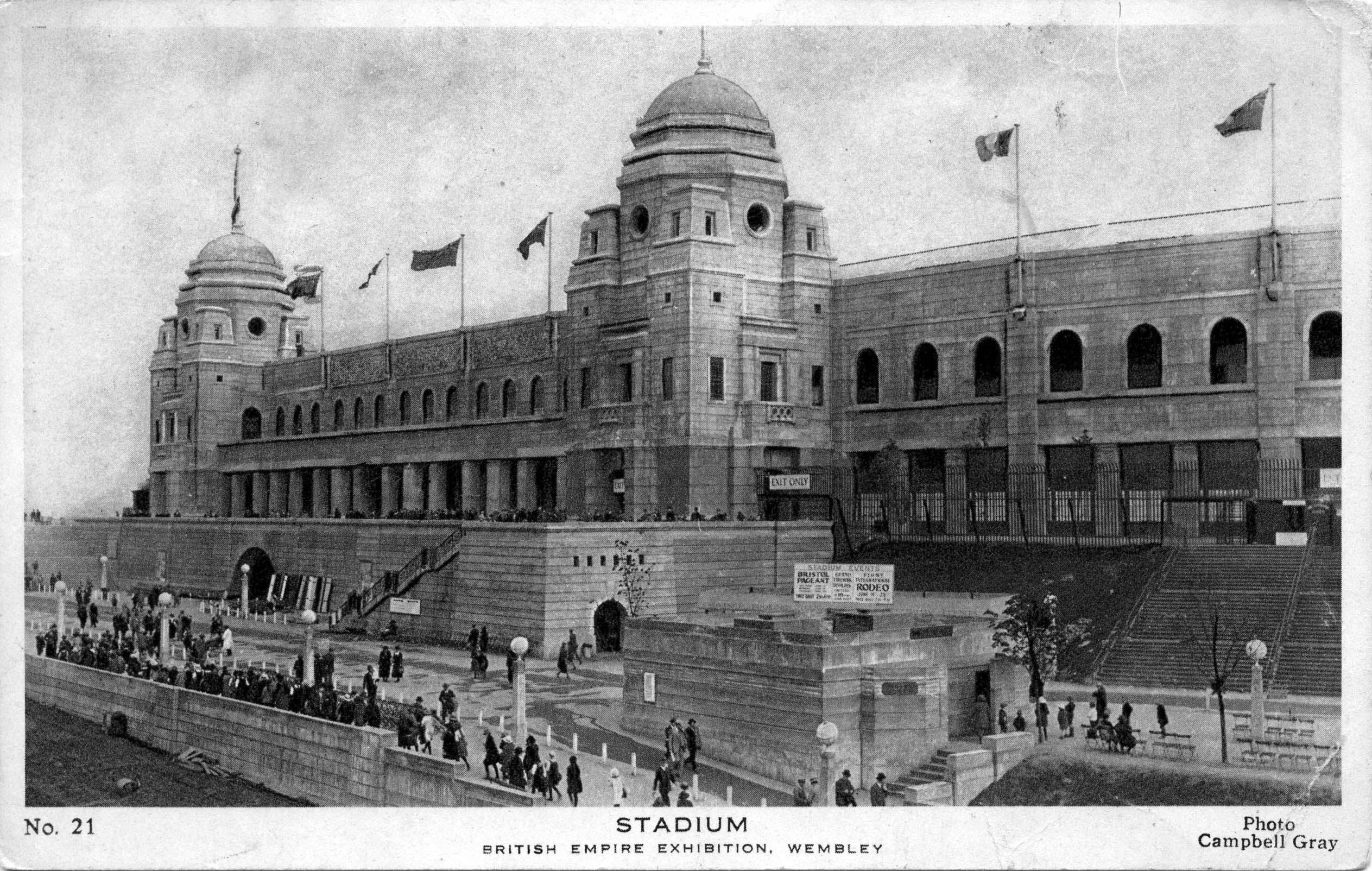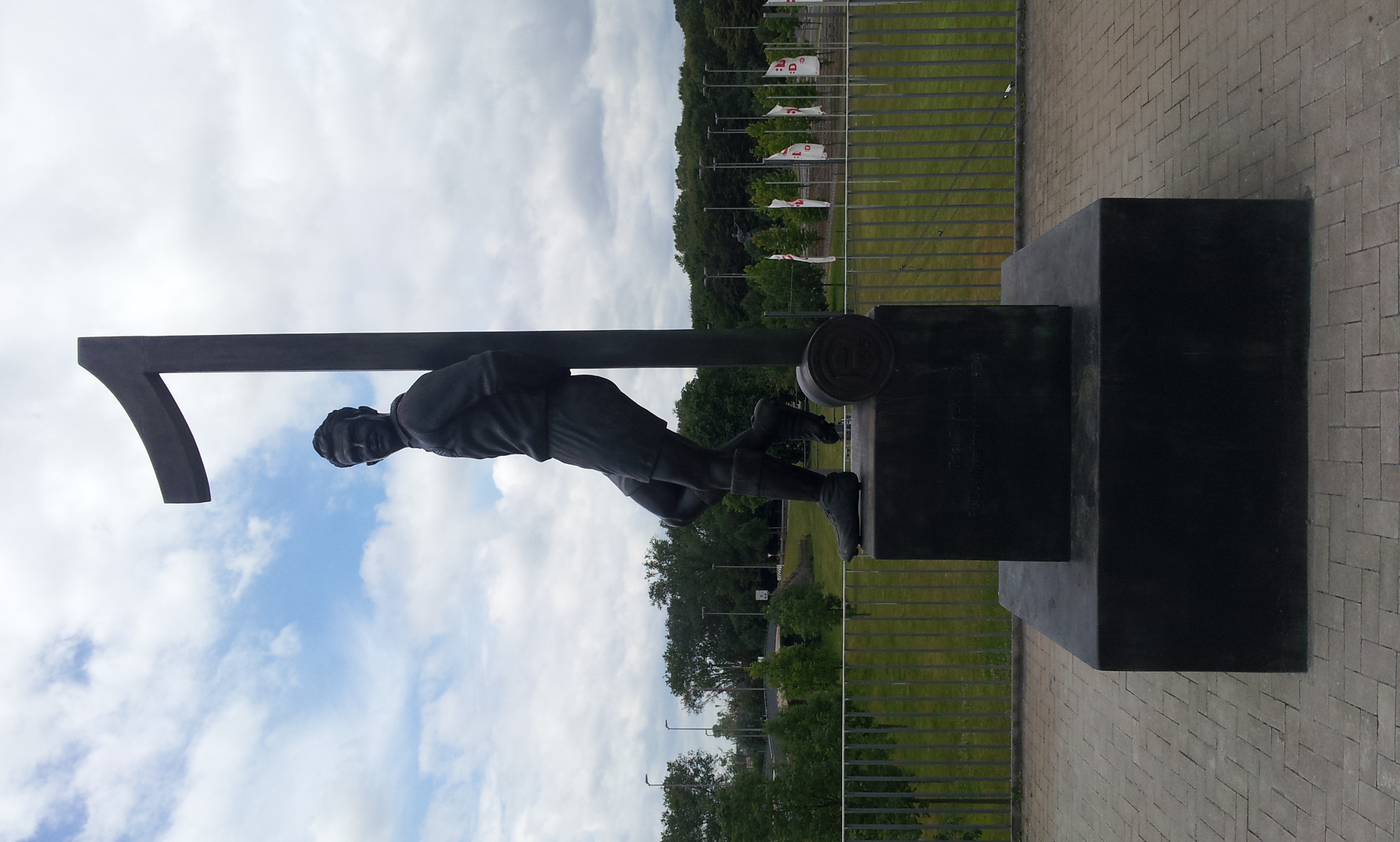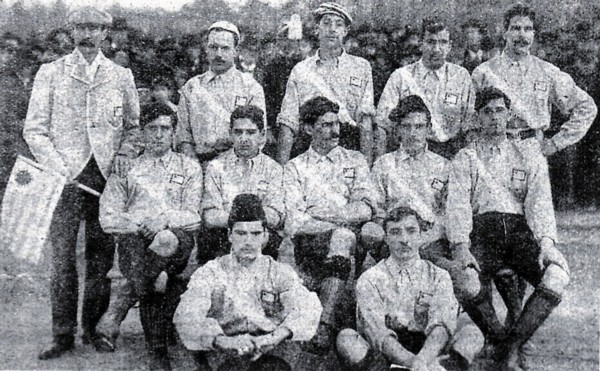|
Benjamin Mervyn Griffiths
Benjamin Mervyn "Sandy" Griffiths (17 January 1909 – 21 January 1974) was a Welsh football referee from Abertillery, Monmouthshire. In his professional life he was a teacher. Career He first took up a teaching post in Devon but soon returned to Newport and began his refereeing career in 1934 in local leagues. Within five seasons he was appointed to the Football League list as a linesman and, after the War, refereed the England versus Scotland clash in 1949, and then the 1953 FA Cup Final, otherwise known as the Matthews Final. It was his decision, with two minutes remaining, that enabled Stan Mortensen to equalise from a free-kick awarded just outside the penalty area. Griffiths represented Wales at the 1950, 1954 and 1958 World Cup Finals. In the first of these he appeared in the opening fixture, and in the second took charge of the semi-final between Hungary and Uruguay, and assisting William Ling in the final. In the closing minutes of the match, and with the score at 3- ... [...More Info...] [...Related Items...] OR: [Wikipedia] [Google] [Baidu] |
Abertillery
Abertillery (; cy, Abertyleri) is a town and a community of the Ebbw Fach valley in the historic county of Monmouthshire, Wales. Following local government reorganisation it became part of the Blaenau Gwent County Borough administrative area. The surrounding landscape borders the Brecon Beacons National Park and the Blaenavon World heritage Site. Formerly a major coal mining centre the Abertillery area was transformed in the 1990s using EU and other funding to return to a greener environment. Situated on the A467 the town is north of the M4 and south of the A465 "Heads of the Valleys" trunk road. It is about by road from Cardiff and from Bristol. According to the 2011 Census, 4.8% of the ward's 4,416 (212 residents) resident-population can speak, read, and write Welsh. [...More Info...] [...Related Items...] OR: [Wikipedia] [Google] [Baidu] |
Matthews Final
The 1953 FA Cup Final, also known as the Matthews Final, was the eighth to be held at Wembley Stadium after the Second World War. The football match was contested between Blackpool and Bolton Wanderers, with Blackpool winning 4–3, equalling the record for the highest scoring FA Cup Final which had been set in the final of 1890. The match became famous for the performance of Blackpool winger Stanley Matthews, after whom it was nicknamed. It was the third FA Cup Final (after those in 1890 and 1894) to feature a hat-trick, scored by Blackpool's Stan Mortensen. Blackpool were making their third FA Cup final appearance in six years having been losing finalists twice, in 1948 and 1951. In February 2010, the boots worn by Matthews in the match were auctioned at Bonhams in Chester for £38,400, to an undisclosed buyer and in November 2014 Matthews' winning medal was sold for £220,000. The match ball fetched £5,250 in 2018. Road to Wembley *Third round **Sheffield Wednesday 1 Blackp ... [...More Info...] [...Related Items...] OR: [Wikipedia] [Google] [Baidu] |
Wembley Stadium (1923)
The original Wembley Stadium (; originally known as the Empire Stadium) was a stadium in Wembley, London, best known for hosting important football matches. It stood on the same site now occupied by its successor. Wembley hosted the FA Cup final annually, the first in 1923, which was the stadium's inaugural event, the League Cup final annually, five European Cup finals, the 1966 World Cup Final, and the final of Euro 1996. Brazilian footballer Pelé once said of the stadium: "Wembley is the cathedral of football. It is the capital of football and it is the heart of football", in recognition of its status as the world's best-known football stadium. The stadium also hosted many other sports events, including the 1948 Summer Olympics, rugby league's Challenge Cup final, and the 1992 and 1995 Rugby League World Cup Finals. It was also the venue for numerous music events, including the 1985 Live Aid charity concert. In what was the first major WWF (now WWE) pay-per-view ... [...More Info...] [...Related Items...] OR: [Wikipedia] [Google] [Baidu] |
Toni Turek
Anton Turek (18 January 1919 – 11 May 1984) was a German footballer who played as a goalkeeper. Career Born in Duisburg, Turek started his career at Duisburger Sportverein, but he soon switched to TuS Duisburg 48/99. He first came to the attention of later West Germany national team coach Sepp Herberger was on 27 September 1936, when West Germany played a preparation game against Luxembourg in Krefeld. Before that game, the youth teams of Krefeld and TuS Duisburg 48/99 had met with the 17-year-old Turek standing in the Duisburg goal. During World War II Turek was lucky things did not turn out worse for him as a shell splinter struck through his helmet.Bitter, Jürgen. ''Deutschlands Fußball Nationalspieler'', Sportverlag, 1997, p. 503. In 1950 Turek switched to Fortuna Düsseldorf. Between 1950 and 1954 he played 20 games for the West Germany national team. He played in "The Miracle of Bern" 1954 FIFA World Cup final against Hungary and won the Championship. After a fin ... [...More Info...] [...Related Items...] OR: [Wikipedia] [Google] [Baidu] |
Ferenc Puskás
Ferenc Puskás (, ; born Ferenc Purczeld; 1 April 1927 – 17 November 2006) was a Hungarian football player and manager, widely regarded as one of the greatest players of all time and the sport's first international superstar. A forward, he scored 84 goals in 85 international matches for Hungary and played four international matches for Spain. He became an Olympic champion in 1952 and led his nation to the final of the 1954 World Cup. He won three European Cups (1959, 1960, 1966), ten national championships (five Hungarian and five Spanish Primera División) and eight top individual scoring honors. Known as the "Galloping Major", in 1995 he was recognized as the greatest top division scorer of the 20th century by the IFFHS. With 806 goals in 793 official games scored during his career, he is the fifth top goalscorer of all time. He was the son of former footballer Ferenc Puskás Senior. Puskás started his career in Hungary playing for Kispest and Budapest Honvéd. H ... [...More Info...] [...Related Items...] OR: [Wikipedia] [Google] [Baidu] |
Germany National Football Team
The Germany national football team (german: link=no, Deutsche Fußballnationalmannschaft) represents Germany in men's international football and played its first match in 1908. The team is governed by the German Football Association (''Deutscher Fußball-Bund''), founded in 1900. Between 1949 and 1990, separate German national teams were recognised by FIFA due to Allied occupation and division: the DFB's team representing the Federal Republic of Germany (commonly referred to as West Germany in English between 1949 and 1990), the Saarland team representing the Saar Protectorate (1950–1956) and the East Germany team representing the German Democratic Republic (1952–1990). The latter two were absorbed along with their records; the present team represents the reunified Federal Republic. The official name and code "Germany FR (FRG)" was shortened to "Germany (GER)" following reunification in 1990. Germany is one of the most successful national teams in international competit ... [...More Info...] [...Related Items...] OR: [Wikipedia] [Google] [Baidu] |
William Ling (referee)
William Ling (1 August 1908 – 8 May 1984) was an English football referee from Stapleford, Cambridgeshire, who refereed the 1954 FIFA World Cup Final. 1948 Olympic Games Ling rose quickly through the ranks as a referee. He was initially on the supplementary list as a Football League match official but even so was selected to participate in the 1948 Olympic Games football tournament along with George Reader, Stanley Boardman and A. C. Williams from Brighton. Ling refereed both the first round match involving Sweden, the quarter-final involving Italy and was then selected for the final between Sweden and Yugoslavia. The final itself turned on two penalty decisions early in the second half (both which were denied to the Yugoslavians) and which affected their temperament. Bernard Joy, in the 1960 publication "Association Football" (p. 470), wrote: "The setbacks rattled the Yugoslavs, their behaviour got out of hand for a spell and they did not recover their rhythm. What made ... [...More Info...] [...Related Items...] OR: [Wikipedia] [Google] [Baidu] |
Uruguay National Football Team
The Uruguay national football team ( es, Selección de fútbol de Uruguay) represents Uruguay in international Association football, football, and is controlled by the Uruguayan Football Association, the governing body for football in Uruguay. The Uruguayan team is commonly referred to as ''La Celeste'' (The Sky Blue). Regarded to be one of the greatest footballing nations of all time, Uruguay has won the Copa América 15 times being tied with Argentina for the most titles in the history of the tournament. Uruguay won their most recent title in 2011 Copa América, 2011. Additionally, Uruguay are the holders of Four stars above Uruguay's football crest, four FIFA World Championships: The team has won the FIFA World Cup twice, including the first World Cup in 1930 FIFA World Cup, 1930 as hosts, defeating Argentina 4–2 in the final. Their second title came in 1950 FIFA World Cup, 1950, upsetting host Brazil 2–1 in the final match, which had the highest attendance for a football ... [...More Info...] [...Related Items...] OR: [Wikipedia] [Google] [Baidu] |
Hungary National Football Team
The Hungary national football team ( hu, magyar labdarúgó-válogatott) represents Hungary in men's international football and is controlled by the Hungarian Football Federation. The team has made 9 appearances in the FIFA World Cup and 4 appearances in the European Championship, and plays its home matches at the Puskás Aréna, which opened in November 2019. Hungary has a respectable football history, having won 3 Olympic titles, finishing runners-up in the 1938 and 1954 World Cups, and third in the 1964 UEFA European Football Championship. Hungary revolutionized the sport in the 1950s, laying the tactical fundamentals of Total Football and dominating international football with the remarkable Golden Team which included legend Ferenc Puskás, one of the top goalscorers of the 20th century, to whom FIFA dedicated its newest award, the Puskás Award. The side of that era has the all-time highest Football Elo Ranking in the world, with 2230 in 1954, and one of the longest ... [...More Info...] [...Related Items...] OR: [Wikipedia] [Google] [Baidu] |
Semi-final
A single-elimination, knockout, or sudden death tournament is a type of elimination tournament where the loser of each match-up is immediately eliminated from the tournament. Each winner will play another in the next round, until the final match-up, whose winner becomes the tournament champion. Each match-up may be a single match or several, for example two-legged ties in European sports or best-of series in American pro sports. Defeated competitors may play no further part after losing, or may participate in "consolation" or "classification" matches against other losers to determine the lower final rankings; for example, a third place playoff between losing semi-finalists. In a shootout poker tournament, there are more than two players competing at each table, and sometimes more than one progressing to the next round. Some competitions are held with a pure single-elimination tournament system. Others have many phases, with the last being a single-elimination final stage, often c ... [...More Info...] [...Related Items...] OR: [Wikipedia] [Google] [Baidu] |
FIFA World Cup 1958
The 1958 FIFA World Cup was the sixth FIFA World Cup, a quadrennial football tournament for men's senior national teams, and was played in Sweden from 8 to 29 June 1958. It was the first FIFA World Cup to be played in a Nordic country. Brazil beat Sweden 5–2 in the final in the Stockholm suburb of Solna to claim their first title. The tournament also marked the arrival of a then 17-year-old Pelé on the world stage. This was the first appearance of Wales at the FIFA World Cup and they would not qualify for another until 64 years later. There were also debut appearances for Northern Ireland and the Soviet Union. Host selection Argentina, Chile, Mexico, and Sweden expressed interest in hosting the tournament. Swedish delegates lobbied other countries at the FIFA Congress held in Rio de Janeiro around the opening of the 1950 World Cup finals.Norlin, pp. 24–25 Sweden was awarded the 1958 tournament unopposed on 23 June 1950. Qualification The hosts ( Sweden) and the ... [...More Info...] [...Related Items...] OR: [Wikipedia] [Google] [Baidu] |
FIFA World Cup 1954
The 1954 FIFA World Cup was the fifth edition of the FIFA World Cup, the quadrennial international football tournament for senior men's national teams of the nations affiliated to FIFA. It was held in Switzerland from 16 June to 4 July. Switzerland was selected as the host country in July 1946. At the tournament several all-time records for goal-scoring were set, including the highest average number of goals scored per game. The tournament was won by West Germany, who defeated tournament favourites Hungary 3–2 in the final, their first World Cup title. Host selection Switzerland was awarded the tournament unopposed at a meeting in Luxembourg City on 22 July 1946, the same day Brazil was selected to host the 1950 World Cup. Qualification The hosts (Switzerland) and the defending champions (Uruguay) qualified automatically. Of the remaining 14 places, 11 were allocated to Europe (including Egypt, Turkey, and Israel), two to the Americas, and one to Asia. Scotland, Turkey, and S ... [...More Info...] [...Related Items...] OR: [Wikipedia] [Google] [Baidu] |






